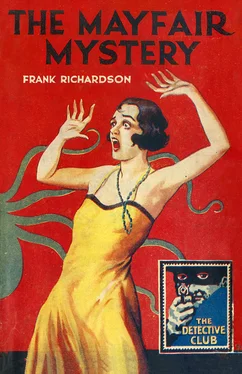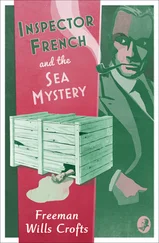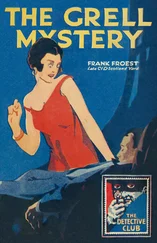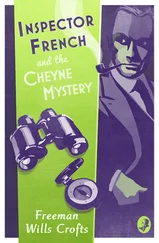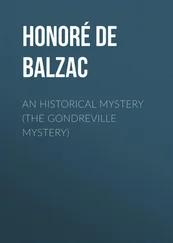Therefore he walked on to Piccadilly, and eastwards past the Circus.
Suddenly he felt a hand clapped upon his shoulder, and a hearty voice inquired:
‘Are you on your way to the Gridiron?’
He turned round to find himself in the presence of Lampson Lake, a jovial, middle-aged man whose chief characteristic was his extraordinary versatility in failure. He had failed at everything, and on that account, perhaps, was universally popular with successful men.
At the mention of the club’s name Harding realised that he was hungry and the two turned into the Gridiron.
The single long room which constituted the famous club was desolate except for two men, Sir Algernon Spiers, the famous architect, and Frederick Robinson, a somewhat obscure novelist, who were seated together at the table.
The newcomers took two seats next them.
Robinson, a wisp of a man with a figure like a note of interrogation and hair brushed straight back without any parting, was, after his usual practice, dealing in personalities.
‘I can’t help thinking, Sir Algernon, that it is a very sound scheme of yours to wear your name on your face.’
‘What the dickens do you mean?’ asked Sir Algernon. ‘How do I wear my name on my face?’
‘I will explain. Your name is Algernon, is it not?’
‘Of course, my name is Algernon,’ replied the other, huffily.
‘Well, don’t you know the meaning of Algernon?’
‘No, I don’t.’
‘It has a very curious origin. Waiter, another whisky-and-soda. A very curious origin. It would be idle for me to assume that you are not aware that you suffer from whisker trouble. In fact, you are at the present moment toying with your near-side whisker. You are massaging it for purposes of your own. Whether it will do any good I can’t say. But both you and I and any intelligent observer must be aware that you cultivate a superb pair of white face-fins. Now, whiskers were originally introduced into England by the founder of the Percy family. He came over with William the Conqueror. He was known among his friends as William Als Gernons, or “William with the Whiskers”; whence, says Burke, his posterity have constantly borne the name of Algernon. Curious, isn’t it?’
‘It’s damned impertinence, sir,’ roared Sir Algernon, purple with indignation.
‘On the contrary,’ replied Robinson. ‘It is merely useful information; very, very useful information. There is no need to thank me for the information.’
Then he turned his attention to Harding.
‘Ah,’ he said cheerily, ‘here we have the woman-hater.’
Harding gave him the lie.
‘I’m not a woman-hater,’ he said. ‘Life is only long enough to allow even an energetic man to hate one woman—adequately. If a man says he hates two women he is a liar or he has scamped his work, or he has never known a single woman worthy of his hatred. The ordinary “woman-hater” hates one woman and has no claim to the title. Would you call a man a football player because he has played football… once ?’
He had no desire to talk. His desire was to eat a devilled bone and return home. But he had always considered it preferable to bore a man than to be bored by him. Also, he was in no mood for the absurdities of Robinson.
‘Still, you have never married,’ pursued the novelist.
‘I told you I was not a misogynist,’ replied Harding, with a perfunctory smile. ‘No girl that I ever knew was so radically bad as to deserve me.’
‘Nonsense,’ broke in Lampson Lake, ‘my dear old chap, I don’t believe there is a man in England who is so anxious to marry as you are. You have got everything in the world except a wife. You are a huge success. You have got a beautiful house…’
‘Thanks to the advice of Sir Algernon here,’ Harding answered.
‘Heaps of friends,’ continued the other. ‘A face that would not exactly frighten the horses. Why, my dear fellow, your whole life is directed with a view to a happy marriage. You are only looking out for…the impossible.’
‘What do you mean by the impossible?’ queried Robinson.
‘Oh, not you,’ replied Lampson Lake, glancing at the novelist, ‘I don’t go in for personalities. You needn’t worry. The impossible is the perfect woman. And that is what Harding is looking for.’
And herein Lampson Lake was right.
Indeed, Harding, tall, sparsely built, handsome—in a non-theatrical manner, despite his clean-shaven face—with bright brown eyes and athletic figure, seemed rather a happily-married man than a man whose one grief was the fact that he had never yet met a woman with whom he had desired to live for the term of his natural life. He knew that life should be duet. The confirmed soloist is regarded with mistrust. If a man declines to take a partner into his life’s business, surely that life must indeed be a dull and drab affair. And Harding was exceedingly popular with both men and women. Yet he had never come across a woman who could rouse in his heart any feeling warmer than the great affection he had for Clifford Oakleigh.
‘But you’re not married either,’ said Sir Algernon to Lampson Lake. ‘Are you looking for the perfect woman, too?’
‘It is no good my looking,’ he replied. ‘No woman will marry a failure—a specialist in failures, that is.’
‘On the contrary,’ interposed Robinson, ‘some of the most shocking failures I know are married.’
‘Yes, but they married first ,’ explained Lampson Lake, ‘they became failures afterwards . It is a great consolation for a man, who has made a muddle of his life, to throw the blame on his wife, especially if he can get his wife to believe it.’
‘A perfectly trained wife will believe in anything,’ was the architect’s comment.
‘Except in her husband,’ corrected Robinson, who, not being married, knew all things about wedlock.
‘A woman wants to marry a man who will succeed or who has succeeded, and I think most women prefer the first. It is surely the greatest privilege of her life to accompany the man she loves from poverty to riches, from obscurity to fame.’
‘No doubt,’ answered Lampson Lake. ‘But I am not in a position, and I never have been in a position, to give a woman the chance. I am one of Nature’s failures. And, mind you, I’m not complaining. The world has need of failures. It is a great pleasure to any K.C. who was called to the Bar at the same time as myself to realise that no sane solicitor would ever give me a brief. Besides, people are kind to me because they are not jealous. They give me their best in the way of food and wine because they know I am not too busy to notice such things. They trust me with their wives because they know I am not ambitious, with their daughters because I am too poor to marry. Oh, I have an excellent time, thank you.’
‘Then, Lampson,’ asked the K.C., ‘you really enjoy not being a…success?’
‘Well, I shouldn’t like to be a failure…as a failure. I am, at any rate, the leading failure of this club. But that’s not saying much, because we’re all famous here; except, of course, Robinson. He is merely notorious.’
‘Thank you,’ replied Robinson, smiling. ‘I know you meant to be rude, but you failed even at that. Fame is what we call the reputation of people who are dead, of great men who are dead. Notoriety is the reputation of great men who are alive.’
‘What,’ asked Lampson, ‘would you call Clifford Oakleigh? Is he famous or is he notorious?’
‘As he is alive,’ replied Robinson, ‘he is notorious. When he is dead he will be famous.’
Harding shot a keen glance at him. He was on the point of speaking. But his lips shut tight.
‘He is a most extraordinary man,’ said Sir Algernon. ‘You know I built that house for him in Pembroke Street, No. 69. He gave me an absolutely free hand to do anything I liked, and I must say I was pleased with what I did. Everything went well until the house was almost finished, and then suddenly Clifford, who is one of the best chaps in the world as we all know, began taking a very great personal interest in the details. So keen was his interest that it became very awkward for me, as a professional man. And, mind you, I discovered that he knows a great deal about architecture. In fact, I have never come across anything that he doesn’t understand. Well, we had a sort of amicable quarrel. We agreed to differ. And the result of the whole thing was that the completion of the building was taken out of the contractor’s hands and he gave the job to some tenth-rate builder that he had discovered in Hammersmith.’
Читать дальше
